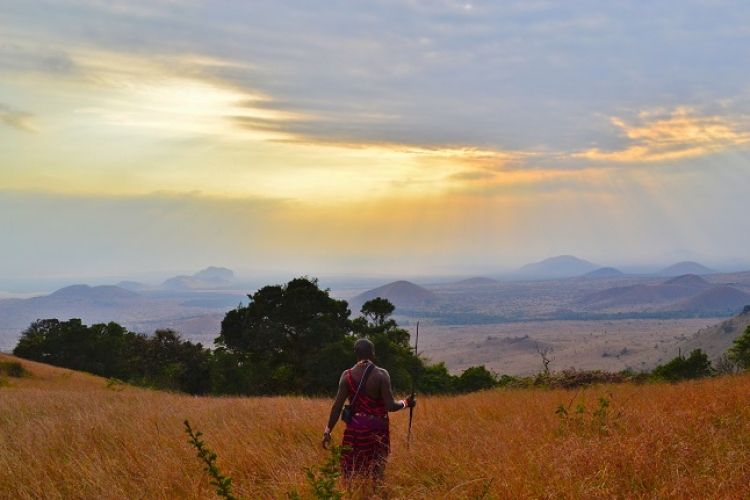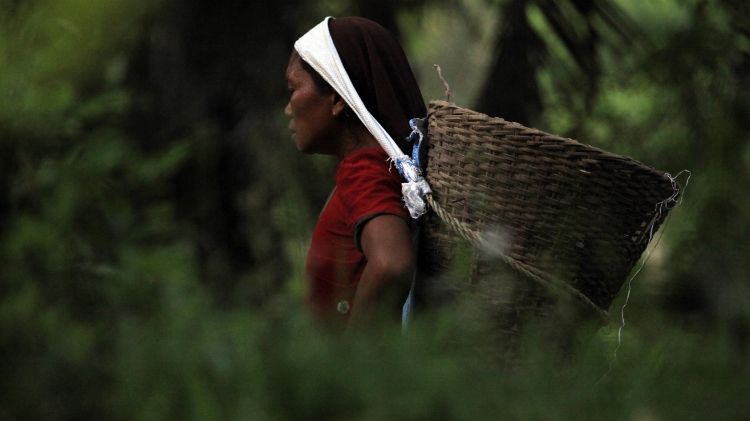International Women's Day focuses on rural women and girls

International Women's Day focuses on rural women and girls
Transforming the lives of women and girls is the focus of this year's International Women's Day. Photo by Seth Doyle on Unsplash.
Today is International Women’s Day. It is a day to focus on what we, as individuals and collectively, can do to empower women and girls and create a more inclusive, gender-equal world, for everyone.
It’s also a day to celebrate the social, economic, cultural and political achievement of women.
Themes for the day are connected, from #PressforProgress (internationalwomensday.com) to the United Nations theme, “Time is Now: Rural and urban activists transforming women’s lives” (unwomen.org/en/news/in-focus/international-womens-day); and “Leave No Woman Behind” (unwomen.org.au).
Below, Dr Laurelle Smith, a Research Analyst at The Salvation Army’s International Social Justice Commission in New York, also reflects on rural women in the latest edition of the commission’s publication #upForJustice.
Challenges and opportunities in achieving gender equality and the empowerment of rural women and girls is also the priority theme at the upcoming Commission on the Status of Women (CSW), which will take place at the United Nations Headquarters in New York from 12-23 March 2018.
As in previous years, Salvation Army delegates will host, present and attend a range of sessions at this year’s CSW.
The Commission on the Status of Women is a global policy-making body and a part of the United Nations Economic and Social Council. It is dedicated exclusively to promoting gender equality and the empowerment of women.
The empowerment of rural women and girls
When I think of women living in rural areas, I think of strength. In particular, I think of Joanne, a mother of three, who lives in a small village in rural Philippines and who I have got to know over the past five years.
She takes care of her children and her home while her husband is out working to make enough money to make sure they have somewhere to live. Each day she wakes early to secure food and water for her children by making hundreds of small paper bags to earn enough money to buy food for her family.
She also takes care of her elderly neighbours and volunteers in her local church. She teaches her children and inspires them to dream. She sacrifices. She works hard. She is strong.
Rural women make up more than a quarter of the world’s population and 43 per cent of the world’s agricultural labour force – rising to 70 per cent in some countries (unwomen.org).
Women plough the land, plant seeds and harvest the crops. They collect water and firewood. They ensure food security for their communities and build climate resilience. But when it comes to owning land, accessing equipment and financing technology, rural women’s opportunities lag far behind those of men.
Women and girls who live in rural areas also receive fewer opportunities and less access when it comes to education and health care. Only 39 per cent of rural girls attend secondary school, far fewer than rural boys, urban girls and urban boys (unwomen.org).
This lack of education can lead to long-term implications for their family’s wellbeing, an increased likelihood of poverty, and increased rates of child mortality. Access to affordable healthcare and services is limited for women in rural areas with only one-third of them receiving prenatal care compared to 50 per cent in developing regions (unwomen.org).
Despite facing persistent constraints, disadvantages and lack of opportunities, rural women support their households, generate income, raise and educate children, and contribute to their country’s development and economy. They are strong.

Photo by Sho Hatakeyama on Unsplash.
Monday 12 March 2018 marks the start of the 62nd United Nations (UN) Commission on the Status of Women. This annual, two-week event is an opportunity for UN agencies, non-governmental organisations and faith-based organisations to meet to evaluate progress on gender equality, identify the challenges and to promote the empowerment of women worldwide.
Each year celebrates women while focusing on a particular theme. This year’s priority theme is the “challenges and opportunities in achieving gender equality and the empowerment of rural women and girls”.
Since the birth of The Salvation Army in 1865 as The Christian Mission, women have played a significant role in its growth, expansion and work. William Booth readily empowered women, recognising their vital role in the development of societies and in transforming lives. Women are caretakers, educators and entrepreneurs, and their voice and participation in all aspects of society is more important than ever.
The focus on the empowerment of women living in rural areas is of particular importance to The Salvation Army because it has more than 14,000 corps, outposts and service centres worldwide, (The Salvation Army Year Book 2018, page 30) many of which are in rural areas where these women are located.

Photo by Ashes Sitoula on Unsplash.
With more support, opportunity and empowerment, these many thousands of women can make great differences to their families, communities and society in general.
The Salvation Army already provides many programs and facilities for women in rural areas to aid in employment, financing of small business loans, learning practical skills, and increasing education and access to healthcare, but this CSW is an opportunity for the Army, and the church as a whole, to reflect on the special role God has for women and about how he intended them to be treated.
It’s an opportunity for us to talk about the injustices women face and to work together to find sustainable solutions.
This month we ask you to pray for the conversations that will take place at the CSW, because they have the potential to impact hundreds of thousands of people around the world – people like Joanne.
When women, especially women in rural areas, are empowered, given opportunity and choice, and access to land, education and healthcare, they become leaders, business owners, role models and agents of change, improving the prospects of both current and future generations.
This article first appeared in the International Social Justice Commission’s publication, #UpForJustice, in March 2018.